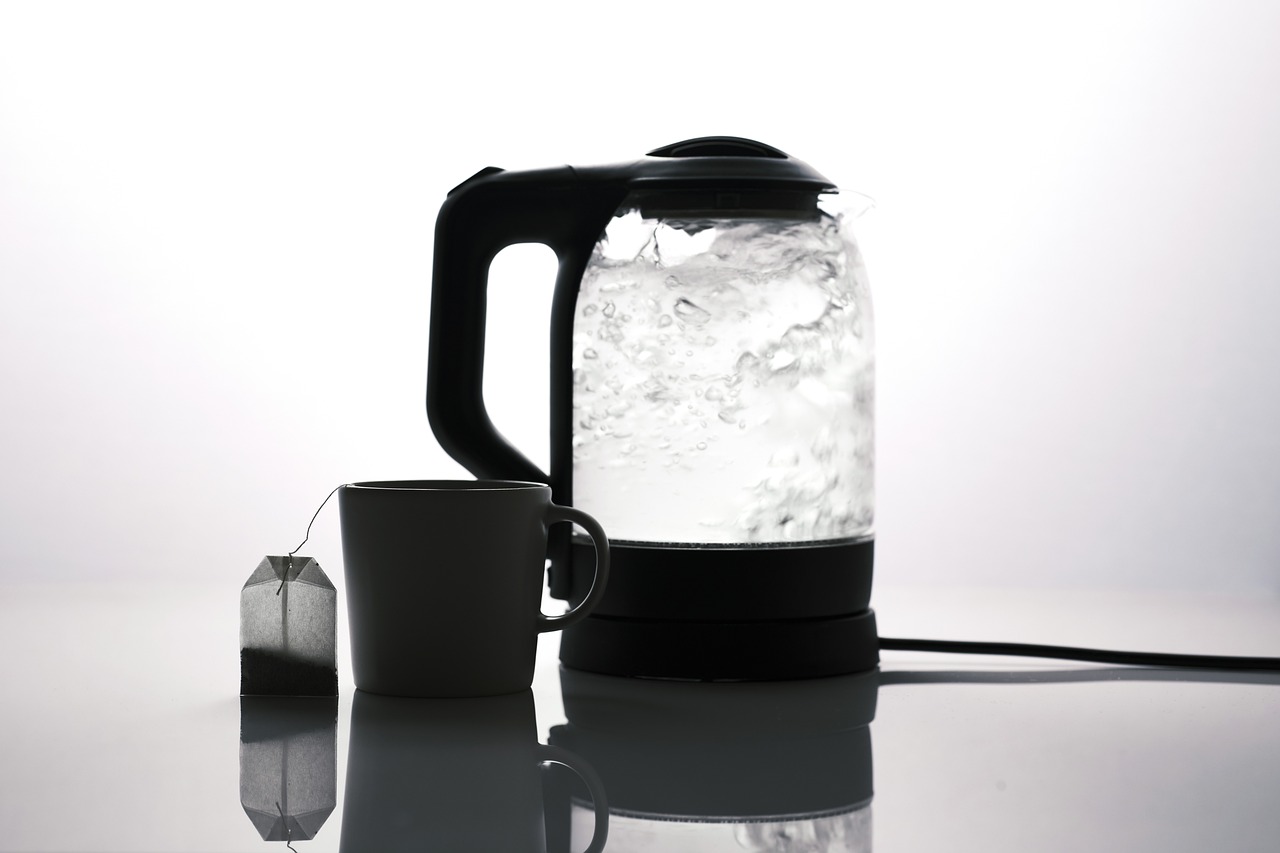This article delves into the concept of water fasting, examining its benefits, potential risks, and practical tips for those new to this fasting method. By gaining a deeper understanding of water fasting, individuals can make informed choices regarding their health and wellness journey.
What Is Water Fasting?
Water fasting is a method where individuals abstain from all food and caloric beverages, consuming only water for a designated period. This practice is often adopted for various purposes such as detoxification, weight loss, and even spiritual growth.
Benefits of Water Fasting
- Weight Loss: Water fasting can lead to significant weight loss as the body utilizes stored fat for energy.
- Improved Metabolic Health: This fasting method may enhance metabolic functions and insulin sensitivity.
- Mental Clarity: Many report increased focus and mental clarity during fasting periods.
Weight Loss and Water Fasting
Many individuals pursue water fasting primarily for weight loss. By drastically reducing caloric intake, the body shifts to burning stored fat, resulting in weight reduction over time.
How Much Weight Can You Lose?
The amount of weight lost during a water fast varies by individual, influenced by factors like the duration of the fast and starting weight. It’s crucial to set realistic expectations regarding weight loss outcomes.
Long-term Weight Management
While water fasting can initiate weight loss, maintaining a healthy lifestyle post-fast is essential. Sustainable dietary changes and regular exercise are necessary for long-term weight management.
Health Benefits Beyond Weight Loss
In addition to weight loss, water fasting may promote cellular repair and improve insulin sensitivity, contributing positively to overall health and potentially lowering the risk of chronic diseases.
Risks and Considerations of Water Fasting
Despite its benefits, water fasting carries risks. It is vital for individuals considering this fasting method to understand these potential dangers, especially those with pre-existing health conditions.
Potential Side Effects
During a water fast, individuals may encounter side effects such as fatigue, dizziness, and nutrient deficiencies. Recognizing these symptoms can help manage expectations and ensure safety throughout the fasting period.
Who Should Avoid Water Fasting?
Certain groups, including pregnant women, individuals with eating disorders, and those with chronic health conditions, should steer clear of water fasting. Consulting a healthcare professional before starting any fasting regimen is advisable.
How to Prepare for a Water Fast
Preparation is key to a successful water fast. Understanding how to ease into fasting can enhance the experience and minimize discomfort.
Gradual Reduction of Food Intake
Before embarking on a water fast, gradually reducing food intake can help the body adjust. This method allows for a smoother transition and can decrease potential side effects.
Hydration and Electrolyte Balance
Maintaining proper hydration and electrolyte levels during a water fast is crucial. Drinking sufficient water and considering electrolyte supplements can support overall health throughout the fasting period.
Breaking a Water Fast Safely
How you break a water fast is essential to avoid digestive distress. Knowing the best practices for reintroducing food can ensure a smoother transition back to regular eating.
Recommended Foods to Break a Fast
After a water fast, it’s advisable to start with easily digestible foods. Options like broths, smoothies, and soft fruits can help the digestive system readjust without overwhelming it.
Signs of a Successful Water Fast
Recognizing signs of a successful water fast can enhance the fasting experience. Indicators may include increased energy levels and improved mental clarity as the fast progresses.

What Is Water Fasting?
Water fasting is a dietary practice that involves abstaining from all food and caloric beverages, consuming only water for a designated period. This approach has gained popularity for various reasons, including detoxification, weight loss, and even spiritual growth. Understanding the fundamentals of water fasting is essential for anyone considering this method as part of their health and wellness journey.
During a water fast, individuals typically refrain from eating solid food and drinking anything other than water. The duration of the fast can vary widely, ranging from 24 hours to several days or even weeks, depending on personal goals and health conditions. The primary aim is to allow the body to rest from digestion, potentially leading to various health benefits.
Water fasting has roots in many ancient cultures, often associated with religious or spiritual practices. For instance, various religious texts mention fasting as a means of purification and reflection. Today, many people are adopting this practice not only for spiritual reasons but also for its health benefits.
When the body enters a state of fasting, it begins to utilize stored energy sources. Initially, it consumes glycogen stored in the liver and muscles. Once these stores are depleted, the body shifts to burning fat for energy, a process known as ketosis. This metabolic change can lead to weight loss and other health improvements.
- Weight Loss: One of the most immediate effects of water fasting is weight loss, as the body begins to burn fat for fuel.
- Improved Metabolic Health: Studies suggest that fasting can enhance insulin sensitivity and lower blood sugar levels.
- Cellular Repair: Fasting may promote autophagy, a process where cells clean out damaged components, potentially reducing the risk of chronic diseases.
- Mental Clarity: Many individuals report improved focus and mental clarity during fasting periods.
While water fasting can offer numerous benefits, it is not without risks. Some individuals may experience side effects such as:
- Fatigue: A common experience during fasting as the body adjusts to the lack of food.
- Dizziness: This can occur due to low blood sugar levels.
- Nutrient Deficiencies: Extended fasting can lead to deficiencies in essential vitamins and minerals.
Individuals with pre-existing health conditions, pregnant women, and those with a history of eating disorders should consult a healthcare professional before attempting a water fast.
Preparation is crucial for a successful water fast. Here are some practical tips:
- Gradual Food Reduction: Before starting a water fast, gradually reduce food intake over a few days to help your body adjust.
- Stay Hydrated: Ensure you are drinking plenty of water leading up to the fast.
- Electrolyte Balance: Consider electrolyte supplements to maintain balance during the fast.
How you conclude your water fast is equally important. It is advisable to start with easily digestible foods, such as:
- Broths
- Smoothies
- Soft fruits
This approach allows your digestive system to readjust without overwhelming it.
In summary, understanding what water fasting entails can empower individuals to make informed decisions about their health. Whether for detoxification, weight loss, or spiritual reasons, being aware of the benefits and risks is essential for a safe and effective fasting experience.

Benefits of Water Fasting
Water fasting has gained popularity in recent years as a method for improving health and wellness. This practice involves abstaining from all food and caloric beverages, consuming only water for a specified duration. While the primary goal for many may be weight loss, the extend beyond mere numbers on a scale. Understanding these advantages can help motivate individuals to explore this fasting method further.
- Weight Loss: One of the most cited benefits of water fasting is its potential for weight loss. When the body is deprived of food, it begins to break down stored fat for energy. This process can lead to significant weight reduction, especially when combined with a healthy lifestyle post-fast.
- Improved Metabolic Health: Water fasting may enhance metabolic health by improving insulin sensitivity and reducing inflammation. These changes can help regulate blood sugar levels and decrease the risk of developing type 2 diabetes.
- Enhanced Mental Clarity: Many individuals report increased mental clarity and focus during a water fast. This can be attributed to the body entering a state of ketosis, where it uses fat for fuel, potentially leading to improved cognitive function.
- Cellular Repair: Fasting triggers a process known as autophagy, where the body removes damaged cells and regenerates new ones. This cellular repair mechanism can contribute to longevity and overall health.
- Detoxification: Water fasting is thought to aid in detoxification, allowing the body to eliminate toxins accumulated from food and environmental sources. This cleansing effect can leave individuals feeling rejuvenated.
Understanding these benefits can serve as a powerful motivator for individuals considering water fasting. However, it is essential to approach this method with caution and awareness of potential risks.
While the benefits are compelling, water fasting is not suitable for everyone. Individuals with certain medical conditions, pregnant women, or those with a history of eating disorders should consult a healthcare professional before embarking on a fasting journey. Additionally, it is crucial to be aware of potential side effects, such as fatigue or dizziness, particularly during the initial days of fasting.
To maximize the benefits of water fasting, proper preparation is vital. Gradually reducing food intake leading up to the fast can help the body adjust more comfortably. Staying hydrated and considering electrolyte balance during the fast can also support overall health.
In conclusion, the can be numerous, spanning from weight loss to improved mental clarity and cellular repair. By understanding these advantages and preparing adequately, individuals can embark on their fasting journey with confidence and awareness.
Weight Loss and Water Fasting
Water fasting has gained popularity as a method for weight loss, attracting many individuals looking for quick results. This fasting approach involves abstaining from all food and caloric beverages, consuming only water for a designated period. The primary mechanism behind weight loss during water fasting is the body’s transition from using glucose for energy to utilizing stored fat. When caloric intake is drastically reduced, the body enters a state known as ketosis, where it begins to burn fat for fuel. This process can lead to significant weight reduction over time.
When you embark on a water fast, your body undergoes several metabolic changes. Initially, glycogen stores—carbohydrates stored in the liver and muscles—are depleted. This usually occurs within the first 24 hours of fasting. Once glycogen is exhausted, the body starts to break down fat stores for energy, leading to weight loss. This shift not only helps in shedding pounds but also promotes a reduction in body fat percentage.
- Duration of the Fast: The length of the water fast significantly impacts the amount of weight lost. Shorter fasts may result in minimal weight loss, whereas extended fasts can lead to more substantial reductions.
- Starting Weight: Individuals with higher starting weights may experience more significant weight loss compared to those who are already at a healthy weight.
- Metabolic Rate: Each person’s metabolic rate varies, influencing how quickly the body burns calories and fat.
While many individuals report significant weight loss during water fasting, it is crucial to maintain realistic expectations. Weight loss can vary widely based on individual factors, and some may experience fluctuations due to water retention or muscle loss. It’s also important to note that some of the initial weight lost may be water weight rather than fat. Therefore, sustainable weight loss requires a balanced approach that includes healthy eating and regular exercise after the fasting period.
Water fasting can serve as a powerful kickstart for those looking to lose weight; however, it is essential to develop a post-fast plan to maintain results. After completing a water fast, individuals should focus on integrating nutrient-dense foods into their diet to support overall health. This includes:
- Whole Foods: Incorporating fruits, vegetables, lean proteins, and whole grains can help sustain weight loss.
- Regular Exercise: A consistent exercise routine can help maintain weight loss and improve overall well-being.
- Mindful Eating: Practicing mindful eating can prevent overeating and promote healthier food choices.
Despite its benefits, water fasting is not suitable for everyone. Individuals with certain health conditions, pregnant women, and those with a history of eating disorders should avoid this fasting method. Furthermore, potential side effects such as fatigue, dizziness, and nutrient deficiencies can occur. It is advisable to consult a healthcare professional before starting any fasting regimen to ensure safety and effectiveness.
In summary, water fasting can be an effective method for weight loss, primarily by promoting fat utilization for energy. However, it is crucial to approach it with caution, set realistic expectations, and develop a sustainable plan for maintaining weight loss post-fast. By understanding the mechanics and implications of water fasting, individuals can make informed decisions about their health and wellness journey.
How Much Weight Can You Lose?
When considering a water fast, many individuals are curious about the potential weight loss they can achieve during this period. The truth is, the amount of weight lost varies significantly from person to person. Factors such as the duration of the fast, starting weight, metabolic rate, and overall health play a crucial role in determining the outcomes of water fasting.
Typically, individuals may lose anywhere from a few pounds to over ten pounds during a water fast. For instance, those with higher body fat percentages often experience more significant weight loss initially, as their bodies utilize stored fat for energy. Conversely, individuals with lower body fat may notice less dramatic changes. It’s also important to recognize that initial weight loss is often due to the loss of water weight rather than fat loss.
During the first few days of a water fast, the body depletes its glycogen stores, which are stored carbohydrates. This process can lead to a rapid drop in weight as the body sheds excess water. After the glycogen stores are depleted, the body begins to enter a state of ketosis, where it starts burning fat for energy. This transition can vary in timing depending on the individual’s metabolism and dietary habits prior to fasting.
Here are some key factors that influence weight loss during a water fast:
- Duration of the Fast: Longer fasts may result in more significant weight loss, but they also pose increased risks and should be approached with caution.
- Starting Weight: Individuals with higher starting weights may lose weight more rapidly at the beginning of their fast.
- Hydration Levels: Proper hydration is crucial. Dehydration can lead to complications and may hinder weight loss efforts.
- Physical Activity: Engaging in light physical activity during a fast can help maintain muscle mass and support metabolism.
It’s essential to approach fasting with realistic expectations. While water fasting can lead to weight loss, it is not a sustainable long-term solution for weight management. Many individuals find that once they resume normal eating habits, they may regain some of the weight lost during the fast. Therefore, it is vital to combine fasting with a balanced diet and regular exercise to achieve lasting results.
Moreover, the psychological aspects of fasting should not be overlooked. Many people experience emotional highs and lows during a fast, which can affect their relationship with food and body image. Keeping a journal or seeking support from others who have experience with fasting can be beneficial.
In conclusion, while water fasting can result in weight loss, the amount varies widely among individuals. Understanding the factors that influence weight loss during a water fast can help set realistic goals and expectations. Always consult with a healthcare professional before starting any fasting regimen to ensure it is safe and appropriate for your specific health needs.
Long-term Weight Management
is a crucial aspect of maintaining a healthy lifestyle, especially after undergoing a water fast. While water fasting can serve as a powerful tool for initiating weight loss, it is essential to understand that the journey does not end there. The key to successful weight management lies in adopting sustainable lifestyle changes that encompass both diet and exercise.
After completing a water fast, many individuals experience significant weight loss due to the caloric deficit created during the fasting period. However, this initial weight loss can be misleading if not followed by a structured plan for maintaining that weight. It’s vital to recognize that returning to previous eating habits can result in rapid weight regain, negating the benefits achieved during the fast.
To ensure lasting results, it’s important to focus on nutritional balance. This involves incorporating a variety of whole foods into your diet, such as:
- Fruits and Vegetables: Rich in vitamins, minerals, and fiber, these foods are essential for overall health.
- Lean Proteins: Foods like chicken, fish, legumes, and tofu help maintain muscle mass and promote satiety.
- Whole Grains: Options such as quinoa, brown rice, and oats provide sustained energy and are more filling than refined grains.
In addition to a balanced diet, regular physical activity is indispensable for long-term weight management. Engaging in a mix of cardiovascular exercises, strength training, and flexibility workouts can enhance your metabolic rate and build muscle, which burns more calories at rest. Aim for at least 150 minutes of moderate aerobic activity each week, complemented by muscle-strengthening activities on two or more days.
Another critical factor in maintaining weight loss is mindful eating. This practice encourages individuals to pay attention to hunger cues and portion sizes, promoting a healthier relationship with food. Techniques such as keeping a food journal or practicing gratitude for meals can increase awareness and prevent overeating.
Furthermore, consider the role of hydration in your weight management strategy. Drinking sufficient water not only supports overall health but can also help control appetite and improve metabolic functions. Aim for at least eight 8-ounce glasses of water daily, adjusting based on activity level and climate.
Lastly, it’s essential to set realistic and achievable goals. Instead of aiming for drastic weight loss, focus on gradual changes that can be maintained over time. Establishing a support system through friends, family, or weight loss groups can also provide motivation and accountability, making it easier to stick to your long-term goals.
In summary, while water fasting can effectively jumpstart your weight loss journey, it is the subsequent lifestyle changes that will ultimately determine your success in achieving long-term weight management. By embracing a balanced diet, regular exercise, mindful eating practices, proper hydration, and realistic goal-setting, you can create a sustainable path toward a healthier you.
Health Benefits Beyond Weight Loss
Water fasting is often associated with weight loss, but its benefits extend far beyond shedding pounds. One of the most significant advantages of this fasting method is its potential to promote cellular repair. During a water fast, the body undergoes a process known as autophagy, where it removes damaged cells and regenerates new ones. This natural cleansing mechanism can enhance overall cellular function and may contribute to longevity.
In addition to cellular repair, water fasting can lead to improved insulin sensitivity. Insulin sensitivity refers to how effectively the body responds to insulin, a hormone that regulates blood sugar levels. When insulin sensitivity is high, the body can utilize glucose more efficiently, reducing the risk of developing conditions such as type 2 diabetes. Studies have shown that fasting can lower insulin levels and improve insulin response, making it a valuable practice for metabolic health.
Moreover, water fasting can have a profound impact on inflammation. Chronic inflammation is linked to various health issues, including heart disease, arthritis, and certain cancers. By reducing inflammation markers in the body, water fasting may help mitigate these risks. Research indicates that fasting can lower levels of inflammatory cytokines, promoting a healthier inflammatory response.
Another notable benefit of water fasting is its potential to enhance mental clarity and cognitive function. Many individuals report experiencing heightened focus and improved mental agility during fasting periods. This effect may be attributed to the increased production of brain-derived neurotrophic factor (BDNF), a protein that supports brain health and function. Enhanced cognitive performance can be particularly beneficial for those seeking to improve productivity and mental acuity.
Additionally, water fasting may support heart health. By improving lipid profiles and reducing blood pressure, fasting can contribute to a healthier cardiovascular system. Studies suggest that intermittent fasting, including water fasting, may lower levels of LDL cholesterol and triglycerides, both of which are risk factors for heart disease.
It’s also worth noting that water fasting can help reset hormonal balance. Hormones play a crucial role in various bodily functions, including metabolism and appetite regulation. Fasting can influence the levels of hormones such as ghrelin and leptin, which are responsible for hunger and satiety signals. By recalibrating these hormones, individuals may find it easier to manage their appetite and make healthier food choices post-fast.
While the benefits of water fasting are compelling, it is essential to approach this practice with caution. As with any health regimen, individual responses may vary, and it is advisable to consult with a healthcare professional before embarking on a water fast, especially for those with pre-existing conditions.
In summary, water fasting offers a range of health benefits beyond weight loss, including cellular repair, improved insulin sensitivity, reduced inflammation, enhanced mental clarity, and better heart health. These advantages underscore the potential of water fasting as a holistic approach to improving overall health and well-being.

Risks and Considerations of Water Fasting
Water fasting, while offering various health benefits, comes with a range of potential risks that individuals must consider before embarking on this journey. Understanding these risks is essential, especially for those with pre-existing health conditions. This section delves into the various dangers associated with water fasting, as well as important considerations for anyone thinking about trying this fasting method.
Water fasting involves abstaining from all food and caloric beverages, consuming only water for a defined period. While many people may seek the benefits of detoxification and weight loss, the risks can outweigh the potential advantages for some individuals. Here are some of the most significant risks associated with water fasting:
- Nutrient Deficiencies: Extended periods of fasting can lead to a lack of essential vitamins and minerals, which are crucial for overall health.
- Electrolyte Imbalance: Prolonged water fasting can disrupt the balance of electrolytes in the body, potentially leading to serious complications such as heart arrhythmias.
- Fatigue and Dizziness: Many individuals report feelings of extreme fatigue, dizziness, or weakness during a water fast, which can affect daily activities.
- Muscle Loss: The body may begin to break down muscle tissue for energy, especially during longer fasting periods, which can have negative implications for metabolism.
There are specific populations who should exercise caution or completely avoid water fasting. These include:
- Pregnant and Breastfeeding Women: Fasting can deprive both the mother and child of essential nutrients.
- Individuals with Eating Disorders: Fasting may exacerbate unhealthy eating patterns and psychological issues.
- People with Chronic Health Conditions: Those with conditions such as diabetes, heart disease, or kidney issues should consult a healthcare professional before considering fasting.
During a water fast, individuals may encounter a variety of side effects. Common symptoms include:
- Headaches: Often caused by dehydration or withdrawal from caffeine.
- Low Blood Sugar: Symptoms can include shakiness, irritability, and confusion.
- Digestive Issues: After breaking a fast, some may experience bloating or discomfort if they resume eating too quickly.
Before starting a water fast, it is highly advisable to consult with a healthcare provider. A medical professional can help assess individual health conditions and provide personalized advice. This step is particularly important for those taking medications or managing chronic health issues.
In summary, while water fasting can offer several potential health benefits, it is crucial to understand the associated risks. By recognizing the signs of adverse effects and consulting with healthcare professionals, individuals can make informed decisions about whether this fasting method is appropriate for them.
Potential Side Effects
Water fasting, while beneficial for many, can lead to a range of that individuals should be aware of before embarking on this journey. Understanding these side effects is crucial for managing expectations and ensuring safety throughout the fasting experience.
One of the most common side effects during a water fast is fatigue. As the body transitions from using food for energy to relying on stored fat, individuals may feel unusually tired or lethargic. This fatigue is often due to the body adjusting to lower energy levels and can be exacerbated by dehydration if water intake is insufficient.
Another frequently reported symptom is dizziness. This can occur as a result of low blood sugar levels or dehydration. Individuals may feel lightheaded, especially when standing up quickly or engaging in physical activity. It’s essential to stay hydrated and listen to your body, as pushing through intense workouts during a fast can lead to further complications.
Moreover, nutrient deficiencies can arise during prolonged water fasting. Since no food is consumed, the body may lack essential vitamins and minerals necessary for optimal functioning. Symptoms of deficiencies can include weakness, mood swings, and impaired cognitive function. It’s crucial to recognize these signs and consider consulting a healthcare professional if they persist.
Additionally, some individuals may experience headaches during a water fast. These headaches can be attributed to withdrawal from caffeine or sugar, both of which are common in many diets. Staying hydrated and gradually reducing intake of these substances prior to fasting can help mitigate this effect.
Another potential issue is gastrointestinal discomfort. This can manifest as bloating or cramping when reintroducing food after the fast. The digestive system may need time to adjust, and starting with easily digestible foods is recommended to avoid overwhelming the stomach.
It’s important to note that not everyone will experience these side effects, and the intensity can vary based on individual health conditions, the duration of the fast, and previous dietary habits. To minimize risks, individuals should consider consulting a healthcare professional before beginning a water fast, especially if they have pre-existing health conditions or are taking medications.
In conclusion, being aware of the potential side effects of water fasting can empower individuals to make informed decisions about their health. Recognizing symptoms such as fatigue, dizziness, and nutrient deficiencies allows for better management of expectations and enhances the overall fasting experience. If side effects become severe or unmanageable, it is advisable to break the fast and seek medical advice.
Who Should Avoid Water Fasting?
When considering a water fast, it is essential to understand that this practice may not be suitable for everyone. Certain populations are particularly vulnerable to the potential risks associated with fasting. Here, we will explore who should avoid water fasting and why consulting a healthcare professional is crucial before embarking on any fasting regimen.
- Pregnant Women: Expecting mothers must prioritize their nutritional needs to support both their health and the development of their baby. Water fasting can lead to nutrient deficiencies that may adversely affect fetal growth and development.
- Individuals with Eating Disorders: Those who have a history of eating disorders, such as anorexia or bulimia, should steer clear of water fasting. This practice can trigger harmful behaviors and exacerbate underlying psychological issues related to food and body image.
- People with Chronic Health Conditions: Individuals suffering from chronic health issues, such as diabetes, heart disease, or kidney problems, may face serious health risks when fasting. For example, fasting can cause fluctuations in blood sugar levels, which can be dangerous for those with diabetes.
- Older Adults: Age can impact the body’s ability to cope with fasting. Older adults may have a reduced capacity to maintain hydration and electrolyte balance, making water fasting potentially hazardous.
- Individuals on Medications: Certain medications require regular food intake to avoid adverse effects. Those taking medications that affect blood pressure, diabetes, or other critical health conditions should consult their healthcare provider before considering a fast.
Due to the potential risks associated with water fasting, it is advisable to seek guidance from a healthcare professional before starting any fasting regimen. A healthcare provider can assess individual health conditions, evaluate risks, and provide personalized recommendations. This step is particularly vital for individuals in the high-risk categories mentioned above.
Furthermore, professional guidance can help in understanding the nutritional needs specific to each individual. A healthcare provider can suggest alternative approaches to achieving health goals, such as weight loss or detoxification, that do not involve the risks associated with water fasting.
For those who choose to fast, being aware of warning signs is crucial. Symptoms such as extreme fatigue, dizziness, or confusion should not be ignored. If any of these symptoms occur, it is essential to break the fast and seek medical advice. Remember, fasting should not compromise your health.
If you fall into one of the high-risk categories or are unsure about water fasting, consider safer alternatives. Approaches like intermittent fasting, where food is consumed within specific time windows, may offer similar benefits without the risks associated with prolonged fasting. Additionally, incorporating balanced, nutrient-rich foods into your diet can promote health without the need for fasting.
In conclusion, while water fasting may offer benefits for some, it is not a one-size-fits-all approach. Understanding who should avoid fasting and the importance of consulting with a healthcare professional can help ensure a safe and effective health journey.

How to Prepare for a Water Fast
Preparation is crucial for a successful water fast. Understanding how to ease into fasting can enhance the experience and minimize discomfort during the fasting period. Proper preparation not only helps the body adjust but also sets the stage for achieving the desired benefits of fasting.
Preparation for a water fast involves both mental and physical readiness. It is essential to approach fasting with a clear mindset and realistic expectations. This phase allows individuals to familiarize themselves with the process and potential challenges they may encounter. By taking the time to prepare, one can mitigate feelings of anxiety and uncertainty that often accompany fasting.
One effective way to prepare for a water fast is by gradually reducing food intake in the days leading up to the fast. This method helps the body adjust to the upcoming changes. Start by eliminating heavy, processed foods and incorporating lighter meals such as salads, soups, and fruits. This transition can ease the digestive system into a state of rest and reduce the shock of suddenly stopping food intake.
Maintaining proper hydration is vital during the preparation phase. Begin increasing your water intake a few days before the fast to ensure your body is well-hydrated. Aim for at least 8-10 glasses of water daily. Staying hydrated helps to flush out toxins and prepares the kidneys for the detoxification process that occurs during fasting.
During a water fast, electrolyte balance can be affected. It’s advisable to consider incorporating electrolyte supplements before and during the fast. These supplements can help maintain essential minerals like sodium, potassium, and magnesium, which are crucial for bodily functions. This step can significantly reduce the risk of side effects such as dizziness and fatigue.
Before embarking on a water fast, it is beneficial to set clear and achievable goals. Whether the aim is detoxification, weight loss, or spiritual growth, having a defined purpose can provide motivation and focus throughout the fasting period. Documenting these goals can also help track progress and maintain commitment.
Before initiating a water fast, especially for the first time, it is wise to consult with a healthcare professional. This is particularly important for individuals with pre-existing health conditions or those taking medications. A healthcare provider can offer personalized advice and ensure that fasting is a safe option based on individual health status.
Fasting can be as much a mental challenge as a physical one. Engaging in mindfulness practices such as meditation or yoga can help prepare the mind for the fasting experience. These practices can enhance self-awareness and help manage cravings and emotional responses during the fast.
Having a support system can make a significant difference in the fasting experience. Consider joining a fasting group or sharing your plans with friends and family who can offer encouragement. This community support can help you stay motivated and accountable throughout the fasting journey.
In conclusion, effective preparation for a water fast encompasses various aspects, including gradual dietary changes, hydration, setting goals, and mental readiness. By taking these steps, individuals can enhance their fasting experience, minimize discomfort, and maximize the benefits of this powerful practice.
Gradual Reduction of Food Intake
Before embarking on a water fast, it is essential to prepare your body adequately. One effective way to do this is through a . This method not only facilitates a smoother transition into fasting but also minimizes the potential side effects that may arise during the fasting period.
When you abruptly stop eating, your body can experience shock, leading to symptoms such as dizziness, fatigue, and irritability. By gradually decreasing your food intake over several days, you allow your body to adjust to the changes more comfortably. This process often involves:
- Reducing Portion Sizes: Start by decreasing the quantity of food you consume at each meal. This can help your body adapt to less food without feeling deprived.
- Eliminating Processed Foods: Gradually cut out high-calorie, processed foods from your diet. Focus on whole foods such as fruits, vegetables, and lean proteins, which can help your body transition more smoothly.
- Incorporating More Liquids: Begin replacing some meals with liquids, such as smoothies or broths. This can help with hydration and prepare your digestive system for the upcoming fast.
By following these steps, you can ease your body into the fasting state, which may lead to a more positive experience. It is essential to listen to your body during this transition period. If you feel persistent hunger or discomfort, consider adjusting your approach or consulting a healthcare professional.
Another critical aspect of preparing for a water fast is hydration. As you reduce food intake, ensure that you are drinking plenty of water. Proper hydration is vital for maintaining energy levels and supporting bodily functions during the fast. You might also want to consider incorporating electrolyte supplements to help maintain a healthy balance of minerals in your body.
Additionally, understanding the psychological aspect of fasting is crucial. Many people find that gradually reducing food intake helps them mentally prepare for the challenge of a water fast. By allowing yourself time to adjust, you can cultivate a more positive mindset, which is beneficial for long-term success.
In summary, a gradual reduction of food intake is a practical and effective strategy for preparing for a water fast. This method allows your body to adjust smoothly, reduces the risk of adverse side effects, and helps you maintain a positive mental outlook throughout the fasting process. Remember, every individual is different, so it is essential to tailor your approach to fit your personal needs and circumstances. Always prioritize your health and well-being, and consider consulting a healthcare professional before starting any fasting regimen.
Hydration and Electrolyte Balance
During a water fast, maintaining proper hydration and electrolyte levels is crucial for overall health and well-being. Fasting can lead to changes in the body’s fluid balance, and without proper hydration, individuals may experience negative side effects. This section will delve into the importance of hydration and electrolytes during a water fast, as well as practical tips on how to manage these essential elements.
Water is vital for numerous bodily functions, including temperature regulation, nutrient transport, and waste elimination. During a water fast, the body relies solely on water intake to sustain these functions. Insufficient hydration can lead to symptoms such as:
- Fatigue
- Dizziness
- Headaches
- Muscle cramps
To avoid these issues, it is essential to drink an adequate amount of water throughout the fasting period. Aim for at least 2-3 liters of water daily, adjusting based on individual needs and activity levels.
Electrolytes, such as sodium, potassium, and magnesium, play a significant role in maintaining fluid balance and supporting nerve and muscle function. During a water fast, the body may lose electrolytes through urine and sweat, leading to an imbalance. This can result in symptoms such as:
- Muscle weakness
- Heart palpitations
- Nausea
To mitigate these risks, consider incorporating electrolyte supplements or consuming electrolyte-rich beverages that do not contain calories. Look for options that are low in sugar and free from artificial additives.
Here are some practical tips to ensure proper hydration and electrolyte balance during your water fast:
- Set a Water Intake Goal: Aim for a specific amount of water each day and track your intake.
- Listen to Your Body: Pay attention to thirst cues and drink water accordingly.
- Use Electrolyte Supplements Wisely: If opting for supplements, choose those that are high-quality and low in calories.
- Monitor Symptoms: Keep an eye on any signs of dehydration or electrolyte imbalance and adjust your intake as needed.
Being aware of the signs of dehydration can help you take immediate action to restore balance. Common symptoms include:
- Dark yellow urine
- Dry mouth
- Increased heart rate
If you notice these symptoms, increase your water intake and consider electrolyte supplementation to help restore balance.
In summary, maintaining proper hydration and electrolyte levels during a water fast is essential for health and safety. By following the tips outlined above and being mindful of your body’s signals, you can enhance your fasting experience and support your overall well-being.

Breaking a Water Fast Safely
is a crucial step that can greatly influence your overall experience and health outcomes. After a period of abstaining from food, the digestive system requires a gentle reintroduction to solid foods. This process is essential to avoid digestive distress and ensure that the body adjusts smoothly back to regular eating habits.
When considering how to break a water fast, it is vital to follow certain best practices. Here are some key points to keep in mind:
- Start Slowly: Begin with small portions of easily digestible foods. This helps your digestive system acclimate without overwhelming it.
- Recommended Foods: Consider starting with broths, smoothies, or soft fruits. These options are gentle on the stomach and provide essential nutrients.
- Avoid Heavy Meals: Steer clear of rich, fatty, or heavily processed foods immediately after breaking your fast. Such foods can lead to discomfort and gastrointestinal distress.
- Listen to Your Body: Pay attention to how your body reacts after consuming food. If you experience any discomfort, it may be wise to revert to liquids or softer foods for a while longer.
Timing is Key: Gradually increase the quantity of food you consume over the next few days. This gradual approach allows your digestive system to adapt and reduces the risk of complications.
Additionally, hydration remains important even after breaking your fast. Continue to drink plenty of water to help your body process the food you are reintroducing. Staying hydrated supports digestion and overall health.
It is also beneficial to incorporate fermented foods after the initial reintroduction phase. Foods such as yogurt, kefir, or sauerkraut can help restore gut flora, which may have been affected during the fasting period.
Monitoring your body’s signals is essential. Signs that indicate a successful reintroduction of food include:
- Increased Energy Levels: You may notice a boost in energy as your body begins to receive nutrients.
- Improved Mental Clarity: Many individuals report enhanced focus and mental clarity as they resume eating.
- Stable Digestion: A smooth digestive process without discomfort is a positive sign that your body is adjusting well.
Lastly, it’s important to maintain a balanced diet after breaking your fast. Incorporate a variety of foods to ensure you receive all necessary nutrients. This not only supports recovery but also promotes long-term health benefits.
In conclusion, breaking a water fast requires careful consideration and planning. By following these guidelines and listening to your body, you can ensure a smooth transition back to regular eating. Remember, the goal is not just to resume eating but to do so in a way that supports your overall health and well-being.
Recommended Foods to Break a Fast
Breaking a water fast is a delicate process that requires careful consideration of the foods you choose to reintroduce into your diet. After a period of abstaining from food, your digestive system may be sensitive and less prepared to handle heavy or complex meals. Therefore, it is essential to start with easily digestible foods that can help your body readjust without causing discomfort.
- Broths: Clear vegetable or bone broths are excellent initial options. They are rich in nutrients and can help hydrate the body while providing essential electrolytes. Broths are gentle on the stomach and can help stimulate digestive enzymes.
- Smoothies: Blending fruits and vegetables into a smoothie can create a nutrient-dense, easily digestible meal. Use soft fruits like bananas or avocados, and consider adding spinach or kale for extra vitamins. Avoid adding dairy or high-sugar ingredients, as these can be harder to digest.
- Soft Fruits: Fruits such as watermelon, cantaloupe, and ripe bananas are great choices. They are hydrating and provide natural sugars, making them easy for your body to process. Their high water content can also aid in rehydration.
- Steamed Vegetables: Gradually introducing steamed vegetables like zucchini, carrots, or spinach can provide fiber without overwhelming your digestive system. Cooking them until soft makes them easier to digest.
- Fermented Foods: Incorporating small amounts of fermented foods like yogurt or kefir can help restore gut health. These foods are rich in probiotics, which can aid digestion and enhance nutrient absorption.
When reintroducing foods, it’s crucial to listen to your body. Start with small portions and pay attention to how you feel after eating. If you experience any discomfort, it may be wise to wait longer before adding more complex foods to your diet.
In addition to the types of food, consider the timing of your meals. Eating smaller, more frequent meals can help ease your digestive system back into a regular eating pattern. Gradually increase the complexity and quantity of your meals over several days, allowing your body the time it needs to adjust.
Moreover, staying hydrated remains important even after breaking your fast. Continue to drink plenty of water and consider incorporating electrolyte-rich beverages to help maintain balance in your body.
Ultimately, the goal of breaking a water fast is to nourish your body gently and effectively. By choosing the right foods and being mindful of your body’s responses, you can ensure a smooth transition back to a regular diet, maximizing the benefits you gained during your fast.
Signs of a Successful Water Fast
Fasting, particularly water fasting, can be a transformative experience for many individuals. As you embark on this journey, recognizing the is essential. These indicators not only enhance your fasting experience but also affirm that your body is responding positively to the process.
One of the most noticeable signs is an increase in energy levels. Initially, many people may feel fatigued or lethargic as their bodies adjust to the absence of food. However, as the fast progresses, you may experience a surge in energy. This is often due to your body switching from using glucose for energy to burning stored fat, which can lead to a more stable energy supply.
In addition to increased energy, many individuals report improved mental clarity. During a water fast, the brain often benefits from the absence of digestive distractions. This can lead to heightened focus and cognitive function. You might find that tasks requiring concentration become easier, and your overall mood may improve as well.
- Enhanced Mood: Many fasters report feeling more positive and less anxious, likely due to hormonal changes that occur during fasting.
- Improved Digestion: A successful fast can lead to a reset of your digestive system, allowing for better nutrient absorption once you resume eating.
- Detoxification: As your body flushes out toxins, you may notice clearer skin and a reduction in inflammation.
Another important sign of success is the absence of severe hunger pangs. While it is normal to feel hungry at the beginning of a fast, if you find that your hunger subsides after the initial days, it indicates that your body is adapting well. This adaptation can lead to a more profound sense of control over food cravings.
Moreover, many individuals report experiencing a sense of spiritual clarity or connection during their fast. This aspect can be particularly significant for those who engage in fasting for spiritual or meditative purposes. The quieting of the mind and the focus on the body’s needs can lead to profound insights and personal growth.
It is also essential to monitor hydration levels. A successful water fast requires adequate water intake to prevent dehydration. If you find yourself feeling well-hydrated and your body is functioning optimally, this is a strong indicator of a successful fast.
However, it is crucial to remain aware of your body’s signals throughout the fasting period. While many signs indicate success, listening to your body is paramount. If you experience severe discomfort, dizziness, or any alarming symptoms, it is vital to reassess your fasting approach or consult with a healthcare professional.
In conclusion, recognizing the signs of a successful water fast can greatly enhance your experience. From increased energy and mental clarity to improved mood and digestion, these indicators can serve as motivators to continue on your fasting journey. Always remember that each individual’s experience may vary, and understanding your body’s responses is key to a safe and effective fasting process.
Frequently Asked Questions
- What should I drink during a water fast?
During a water fast, the only thing you should consume is water. It’s crucial to stay hydrated, so aim for at least 2-3 liters a day. Some people also consider adding a pinch of salt to their water for electrolyte balance, but this should be done cautiously.
- Can I exercise while water fasting?
Exercising during a water fast can be tricky. While light activities like walking or stretching are generally okay, intense workouts might lead to fatigue or dizziness. Listen to your body and adjust your activity level accordingly.
- How long can I safely water fast?
The duration of a water fast varies by individual. Many beginners start with 24-48 hours, while some experienced fasters may go longer. However, it’s important to consult a healthcare professional before embarking on extended fasting periods.
- What are the signs that I should stop my water fast?
If you experience severe dizziness, nausea, or extreme fatigue, it’s time to listen to your body and stop the fast. Always prioritize your health and consult with a medical professional if you’re unsure.
- How do I safely break a water fast?
Breaking a water fast should be done gently. Start with small amounts of easily digestible foods like broths or smoothies. Gradually reintroduce solid foods to avoid overwhelming your digestive system.












